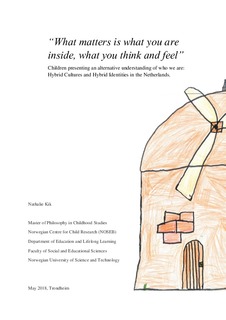| dc.description.abstract | External effects of globalisation have caused discussions in European societies whereby people express feelings of a loss of culture and a loss of identity. Striking in these debates is the negative expression towards Muslims and Muslim cultures, strongly expressed in the media debate. As a reaction to these effects, governments have tried to find ways to strengthen social cohesion in their countries by redefining their national culture and identity. The Netherlands, a country that was known for its tolerance towards immigrants and thereby their way of handling immigration, has in the last couple of years faced assassinations caused by a dissatisfaction towards contemporary integration policies. As a reaction to these assassinations, the combination of Western and non-Western cultures became more and more seen as a source of social problems. As a response to this, the government has tried to redefine national identity using education in the form of history cannons and citizenship education. Even though these solutions to social problems are in the first place implemented on children, children themselves have not had the change to state their opinions about this global pattern. This thesis, therefore, aims to open up debate on the influence that children have on the structure of the society regarding cultural change and identity formation. Through the use of different research methods, this thesis aims to explore the ways by which children describe culture and identity in the contemporary Netherlands. The results of this research show that children form new perspectives on culture and identity, perceiving the contemporary Netherlands as consisting of hybrid cultures and hybrid identities that form a combination of Dutch and foreign characteristics. A focus on these forms of culture and identity shifts the attention away from the expectation of immigrants to adapt to a culture and identity in which they will never become entirely included, to a culture and identity based on similarities in which both parties find common ground and establish social cohesion among all society members. | nb_NO |
